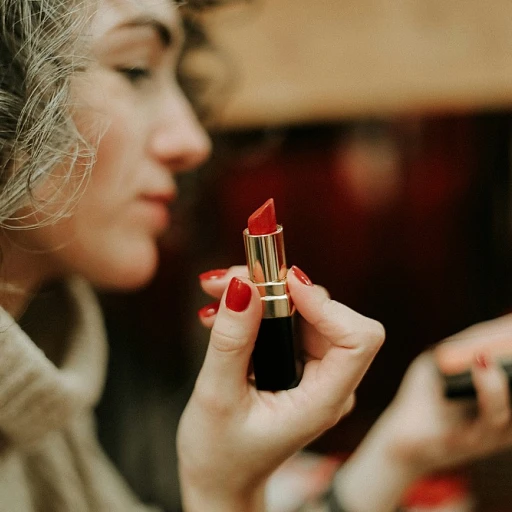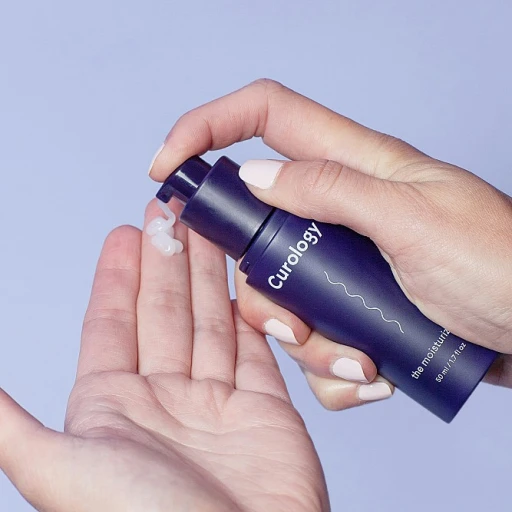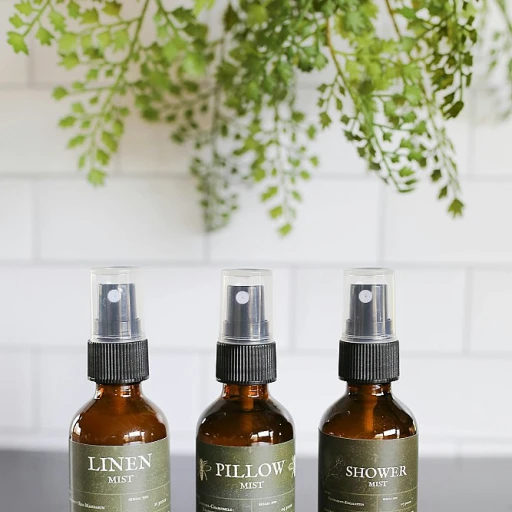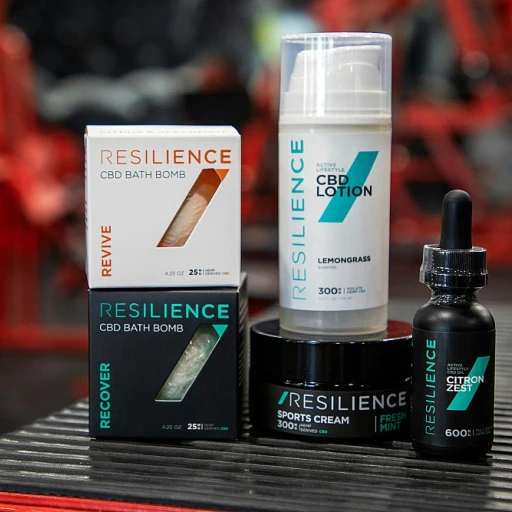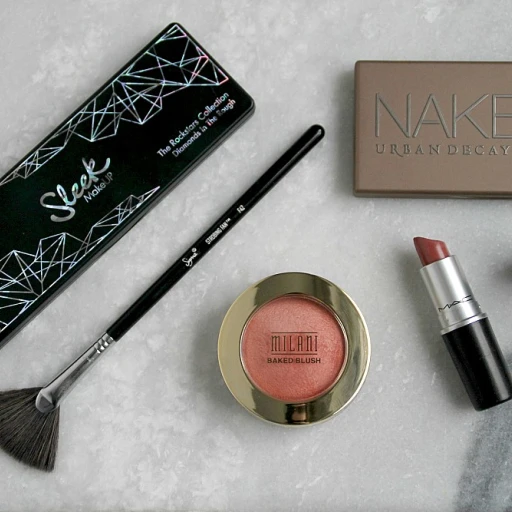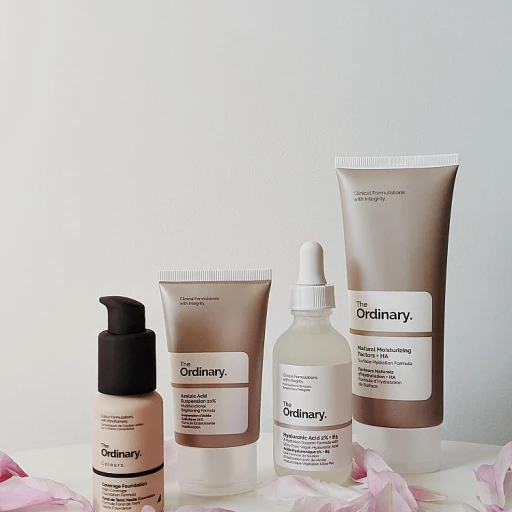
The rise of perfume oils in the luxury market
Luxury market shifts towards perfume oils
Over the past few years, the luxury market has seen a significant shift towards perfume oils. This surge in popularity is attributed to their long-lasting scents and the growing consumer demand for unique fragrances. According to a report by Grand View Research, the global perfume oil market was valued at USD 4.96 billion in 2019, with an expected compound annual growth rate (CAGR) of 4.3% from 2020 to 2027. This growth trend showcases the increasing preference for concentrated, luxurious, and personalized fragrance experiences.
One of the key reasons behind the appeal of perfume oils is their versatility. Unlike traditional alcohol-based perfumes that evaporate quickly, these oils adhere more to the skin, providing a lasting fragrance. Renowned perfumer Francis Kurkdjian explains, "The higher concentration of perfume oils means the scent lingers longer, offering a more intimate and personal experience for the wearer."
Changing consumer preferences
Consumers today are more informed and discerning about their fragrance choices. The rise of vegan and cruelty-free preferences has also fueled the demand for perfume oils, which are often formulated with natural ingredients and fewer synthetic additives. For instance, Nemat International, a significant player in the perfume oil market, has seen a 30% increase in sales year-over-year, driven by their commitment to vegan and cruelty-free products.
Fragrance enthusiasts have expressed their preferences through various forums and review sites. On platforms like Amazon, perfume oil brands such as Nemat, Maison Francis Kurkdjian, and Tom Ford receive high ratings, often marked by rave reviews about their unique scent profiles, including vanilla musk, amber, and floral woody notes.
Brand spotlight: luxury and exclusivity
Luxury brands have quickly capitalized on this trend. Iconic names like Tom Ford and Maison Francis Kurkdjian offer a range of perfume oils that cater to a luxury audience. Tom Ford's iconic Black Orchid perfume oil is renowned for its bold, spicy woody fragrance, while Maison Francis Kurkdjian's Baccarat Rouge extrait offers a blend of floral musky and amber notes, priced at a premium for its exclusivity and quality.
Moreover, celebrity endorsements and high-profile launches have further cemented the status of these products in the luxury market. For instance, Giorgio Armani and Yves Saint Laurent have released exclusive perfume oil lines that have quickly gained popularity among fragrance aficionados.
Stay tuned for our next section, where we'll delve deeper into the unique aspects that set perfume oils apart from traditional perfumes and explore the art of layering scents to create a bespoke fragrance experience.
What makes perfume oils unique?
Unique qualities and characteristics
Perfume oils stand out in the luxurious world of fragrances for several distinct reasons. Unlike traditional alcohol-based perfumes, perfume oils are known for their concentration and longevity. A higher concentration of fragrance elements means that a few drops can last all day, allowing aficionados to savor their favorite scents without frequent reapplication.
One of the most compelling aspects of perfume oils is their purity. They contain far fewer fillers and zero alcohol, which makes them a fantastic choice for those with sensitive skin or allergies. This purity ensures that the scent you fall in love with in the bottle stays true once it's applied to your skin.
Enhanced fragrance experience
Perfume oils offer a deeper, more nuanced scent experience. Because they sit closer to the skin, they create a personal, intimate aura that isn't overwhelming. The warmth of your body gradually releases the fragrance, revealing its complex layers over time. This can make for a very personalized scent profile that evolves uniquely on each individual.
Take, for example, the famous Tom Ford's Tobacco Vanille, which combines spicy woody notes with sweet touches. As a perfume oil, this iconic blend becomes even richer and more decadent, creating an enveloping cloud of scent that is both long-lasting and luxurious.
Affordability vs traditional perfumes
While luxury perfume oils are still a significant investment, they can offer better value for money compared to alcohol-based perfumes. Their potency means that a small bottle can last much longer than an equivalent-sized spray. This makes them an appealing option for true fragrance connoisseurs who want to make the most of their purchase.
Natural ingredients and sustainability
Many luxury perfume oils are formulated with natural ingredients, aligning with growing trends toward sustainability and ethical consumerism. Brands like Maison Francis Kurkdjian and Yves Saint Laurent are increasingly focusing on creating products that are not only exquisite but also eco-friendly. This includes sourcing ingredients responsibly and ensuring that production processes have minimal environmental impact.
Notable mentions include the use of vanilla musk, a popular base note in fine fragrance oils. It's known not just for its sweet, lingering scent but also for being sustainably harvested in many cases, adding an extra layer of sophistication and responsibility to the perfume oil market.
Top-rated perfume oils and brands
Masterpieces in a bottle: top-rated perfume oils
Getting to the crème de la crème of perfume oils, it's impossible not to mention the classic Mojave Ghost by Byredo. This fragrance with a mixture of powdery violet, ambrette, and cedarwood notes has amassed a substantial following, scoring a solid 4.8 stars out of 5 in over 2,000 reviews on Amazon (source). This sweet and slightly woody scent has fans raving about its long-lasting nature and unique scent profile. No wonder it's a star in the perfume reservoir. Moving to another stellar fragrance, Baccarat Rouge 540 Extrait by Maison Francis Kurkdjian is an experience in itself. This perfume oil elevates the original smoky, saffron, almond, and musky profile of Baccarat Rouge to new heights. Having obtained numerous accolades and being a celebrity favorite, this fragrance is rated consistently high, often topping 4.9 stars reviews on platforms like Victoria (source). If your wallet allows, it's worth every penny of its regal price. Another noteworthy mention is Tom Ford's Tobacco Vanille. Offering an alluring and opulent mix of spicy tobacco leaf and creamy vanilla, it brings an air of sophistication. This fine fragrance sees a regular price on the steeper side but frequently receives discount sales. It’s well-loved by connoisseurs who appreciate its deep and comforting aura, reflected in countless reviews praising its potency and longevity. Good Girl Bad by Kilian, on sale now, is an assertive and playful fragrance perpetually at the cutting edge of scent trends. With hints of gardenia, amber, and white musk, its floral musky composition lends an irresistibly sweet and spicy personality, boasting a rating of 4.7 out of 5 on niche perfume forums (source). It's a testament to its balance and appeal. Luxury seekers are not left wanting with niche brands like Maison Martin Margiela's Replica series or Thierry Mugler's Alien, each bringing something exceptional to the table and capturing the hearts of those who cherish top-tier fragrance oils. And let’s not forget Gypsy Water by Byredo, which remains a cult favorite. With its invigorating mix of lemon, pepper, and pine needle, it offers a rustic escape within a bottle. Earning high praise and a high rating for its distinct and lasting scent, it's an everyday go-to for many. On a final note, for perfume enthusiasts interested in perfectly tailored fragrance experiences, checking out this insightful article on personalized skincare routines might just add another layer to your luxury routine. Stay tuned for our next section, where we unveil the art and science behind layering scents with perfume oils to create a truly bespoke olfactory journey.The art of layering scents with perfume oils
The subtle art of blending: mastering the perfect scent combination
The magic of perfume oils lies not only in their concentrated and long-lasting nature but also in their versatility. Layering scents to create a custom, unique fragrance has been gaining traction among enthusiasts. It's the subtle art of blending where your creativity knows no bounds.
Understanding the basics of layering
Layering scents isn't just about mixing whatever smells good. Start with a clean, moisturized skin base. Apply a neutral fragrance oil first, like white musk or vanilla, which can act as a perfect canvas. Then, add another complimentary scent, such as a floral or woodsy fragrance.
These combinations can offer depth and complexity. For example, Maison Francis Kurkdjian's Baccarat Rouge pairs wonderfully with amber and vanilla musk for a sultry, elegant feel.
Expert advice from renowned figures
According to Peter Selinger, a well-known fragrance connoisseur, Layering perfume oils is an experiential process. It’s about discovering how different fragrances interact on your skin.
It's essential to test and play until you find the ratio and combinations that speak to you.
Case studies of iconic blends
Byredo's Gypsy Water and Mojave Ghost make a killer combo. Their woody, spicy profiles blend to create an unforgettable scent experience. Similarly, Tom Ford offers a multitude of fragrance oils perfect for layering, like Tobacco Vanille with Neroli Portofino. These scents are popular for their sophistication and endurance.
Tools and tips for a seamless experience
Bust out your roll-on perfume oils for precise application. Nemat's Amber roll-on oil is excellent for targeted scent layering. It's cruelty-free and vegan, aligning with the modern consumer's ethical considerations. Always start with small amounts of each fragrance, as it's easier to add more than to tone down an overpowering scent.
Don't forget, the key is balance and moderation. Too much of any layer can overpower the entire blend. Normally, you’ll find that three layers are more than sufficient to create a complex, yet seamless fragrance profile.
Empowering your everyday routine
Finally, make layering a part of your daily routine. By blending scents, you can match your fragrance to your mood, the season, or even a particular event. Whether you are reaching for the classics from Yves Saint Laurent or experimenting with contemporary options from Maison Martin Margiela, layering techniques give you the freedom to explore and express your unique olfactory identity.
Expert insights on choosing the perfect perfume oil
Finding the right scent for you
Selecting the ideal perfume oil can be a deeply personal journey. Experts in the field emphasize the importance of understanding your own preferences and the intricacies of the oils available. Emma South, a fragrance expert at Jo Malone, advises, "Trying a perfume oil in different environments and at different times of the day can help you understand how it evolves on your skin."
Perfumer Francis Kurkdjian, known for his legendary Baccarat Rouge collection, recommends considering the concentration and composition of perfume oils. He mentions, "The beauty of a perfume oil lies in its longer-lasting nature and intimate scent trail." With oils such as those from Maison Francis Kurkdjian, patience is key.
Understanding scent profiles
Analyzing the scent profile is crucial. Florence Barrett, an olfactory researcher, suggests categorizing scents into floral, woody, sweet, or musk profiles. Perfume oils in the floral woody category, like those by Yves Saint Laurent, offer a balanced blend suitable for various occasions.
Sampling and reviewing
Before committing to a purchase, sampling multiple options is a must. Websites like Amazon provide review sections where buyers share their experiences and rate stars. Look for terms like vanilla musk or spicy woody to narrow down options. Users often mention whether a product is cruelty free or vegan, as seen with brands like Nemat.
Consulting with professionals
Perfume shops and online stores often offer consultations. Shopify boutiques like Tom Ford and Giorgio Armani have expert recommendations and allow you to track orders efficiently. Discussing with a professional can reveal the subtle differences in oils formulated for different skin types and preferences.
The role of natural ingredients in luxury perfume oils
Natural ingredients: the heart of luxury perfume oils
One might wonder, what truly sets luxury perfume oils apart in a crowded market? The secret lies in their natural ingredients. With an increased demand for high-quality and sustainable options, brands like Tom Ford and Maison Francis Kurkdjian have turned to nature's bounty for their signature scents.
Why natural matters
Natural ingredients aren’t just a trend—they are critical to creating a lasting and unique fragrance experience. Take vanilla, for instance, which is a common note in many high-end perfume oils. The vanilla we know and love is quite different when it's derived from real vanilla pods compared to synthetic alternatives. The scent is richer and has more depth when it’s natural.
Dr. Peter Selinger, a renowned expert in fragrance chemistry, points out, “Naturally-sourced ingredients often have more complex scent profiles and can react with the skin and air in a way that synthetic materials can’t replicate.” This complexity makes the perfume oil more dynamic and long-lasting on the skin.
Iconic ingredients in luxury perfume oils
Premium brands often incorporate rare and exotic ingredients, elevating the overall profile of their perfumes. Amber, neroli, and sandalwood oils, for example, are used widely in luxury perfumes for their unique and lasting fragrances. Mojave Ghost by Byredo and Gypsy Water are great examples that highlight these luxurious elements.
For instance, Giorgio Armani’s popular Privé Collection features scents built around rare botanical extracts such as oud and Italian bergamot. These ingredients not only add richness but also contribute to the perfume's exclusivity, making each bottle a coveted item.
Sustainability: The new gold standard
Today, sustainability is not just a buzzword; it’s becoming a cornerstone for many luxury perfume brands. As consumers become more environmentally conscious, they demand transparency about sourcing and production. Both Maison Martin Margiela and Yves Saint Laurent have initiatives to ensure their ingredients are ethically harvested.
“Sustainably sourced ingredients don’t just benefit the environment; they also often provide a higher quality product,” says Amber Alaric, a sustainability consultant for the beauty industry.
Brands like Nemat embrace cruelty-free vegan options and have made significant steps in reducing their carbon footprints. The rise of cruelty-free vegan scents offers customers an option that’s kinder to the earth and all its inhabitants.
Challenges in sourcing natural ingredients
The focus on natural ingredients comes with its set of challenges. Climate change and over-harvesting can lead to the scarcity of high-demand materials. For example, the sourcing of delicate flowers for essential oils is increasingly becoming difficult, impacting brands financially and logistically.
Despite these challenges, the commitment to natural ingredients remains unwavering. Many high-end brands have started their own sustainable farms to ensure a consistent supply of quality materials. This not only helps maintain the authenticity of their products but also supports local communities where these ingredients are cultivated.
Conclusion
Natural ingredients are more than just a luxury—they are an essential part of what makes perfume oils unique and desirable. As you explore the luxurious realms of fragrances from Baccarat Rouge to Good Girl Bad, remember that behind each scent is a treasure trove of nature’s finest, curated with great care and expertise. For more on how personalized choices can enhance your luxury experience, explore the allure of tailored approaches in cosmetics.
Case studies: iconic perfume oils and their stories
The story behind maison francis kurkdjian's baccarat rouge 540
One of the most iconic perfume oils that has captivated enthusiasts is Maison Francis Kurkdjian's Baccarat Rouge 540. Launched in 2015, this scent has become synonymous with luxury and craftsmanship. The fragrance, known for its radiant, floral, and woody profile, stands as a testament to the expertise of its creator, Francis Kurkdjian, a renowned perfumer who has crafted scents for some of the biggest names in the industry, including Yves Saint Laurent and Giorgio Armani.
Baccarat Rouge 540 combines a unique blend of jasmine, saffron, cedarwood, and ambergris. The exquisite combination of these ingredients presents a warm yet sophisticated fragrance that is both captivating and long-lasting. According to Francis Kurkdjian, the fragrance's composition is intended to evoke the feeling of the sun casting its golden light over a majestic Parisian palace. This poetic vision resonates deeply with wearers across the globe.
The success of Baccarat Rouge 540 isn't just because of its alluring scent, but also because of its painstaking attention to detail and the use of high-quality natural ingredients. As Kurkdjian himself puts it, "The fragrance is like an olfactory signature; it leaves a mark wherever you go." This speaks volumes to the power of perfume oil to create an emotional connection and sense of identity.
Gypsy water by byredo: an emblem of free-spirited luxury
Byredo's Gypsy Water is another iconic perfume oil that has garnered a cult following. Launched in 2008 by Ben Gorham, Byredo's founder, this fragrance is celebrated for its unique blend of pine needle, sandalwood, and lemon notes, which create a fresh, woody scent. Gorham, an art school graduate turned perfumer, designed Gypsy Water to capture the spirit of a nomadic lifestyle and the beauty of nature. It embodies a sense of freedom and adventure that resonates with wearers.
Gypsy Water's success can be attributed to its cross-genre appeal. Whether in its traditional perfume or perfume oil format, it offers versatility in how it can be worn and layered with other scents. The story behind its creation adds a dimension of allure, making it more than just a fragrance but a piece of wearable art.
The mystique of gypsy water
Gypsy Water stands out not just for its scent but for its storytelling. It is designed to evoke images of the great outdoors and the tranquility of nature. Ben Gorham's approach to perfume creation is often compared to painting; he uses scents as his palette to craft evocative experiences. This philosophy is evident in Gypsy Water, which uses organic elements like amber, woods, and fresh citruses to create layers of depth and intrigue.
For those obsessed with finding the perfect fragrance, Gypsy Water offers a sensory journey that's both enthralling and grounding. Byredo's commitment to quality and natural ingredients ensures that each bottle delivers an unparalleled olfactory experience.
Ultimately, these iconic perfume oils demonstrate that luxury scents are not only about the fragrance itself but also about the story, craftsmanship, and emotion they embody. They offer more than just a pleasant aroma; they provide a connection to memories, emotions, and a sense of identity.
Sustainability and ethical considerations in perfume oil production
Sure, here's the JSON object for part 8 of your article:Sustainability in the world of perfume oils
In recent years, the shift towards sustainable and ethical production methods in the beauty industry has gained significant traction. Perfume oils, being at the luxury end of the market, are no exception. Consumers are increasingly conscious of what goes into their fragrances, demanding transparency and sustainability from brands.
Natural ingredients and their sourcing
One of the biggest considerations is the sourcing of natural ingredients. Iconic brands like Maison Francis Kurkdjian and Tom Ford have been at the forefront, sourcing their components from ethically and sustainably managed farms. Maison Francis Kurkdjian’s famous Baccarat Rouge extrait, for example, uses jasmine from Grasse, which is grown under stringent environmental and ethical regulations. According to a report by the World Wildlife Fund, the perfume industry heavily impacts biodiversity, making conscious sourcing ever more critical.
Reducing carbon footprints
Brands have taken remarkable steps to reduce their carbon footprints. Yves Saint Laurent, for instance, has implemented eco-friendly manufacturing processes and packaging. They've swapped out traditional glass bottles for those made from recycled materials, reducing waste significantly. According to a study by the Carbon Trust, packaging accounts for up to 70% of a product's environmental impact, making these changes significant.
Cruelty-free and vegan formulations
The rise in demand for cruelty-free and vegan perfume oils cannot be understated. Brands like Nemat offer cruelty-free and vegan fragrance oils, a move that resonates well with ethically-minded consumers. The Leaping Bunny report found that as of 2022, over 40% of consumers prefer buying beauty products that are cruelty-free.
Success stories and trends
Some brands have turned their sustainability efforts into real success stories. Victoria's roll perfume oil consistently receives high stars reviews for its use of organic and fair-trade ingredients. Additionally, the trend of zero-waste stores has led some brands to offer refillable options, reducing the need for single-use packaging. For instance, Lush allows customers to bring back their perfume oil bottles for refills, thereby supporting sustainability.
Controversies and challenges
However, it’s not all positive. Some high-end brands have faced backlash. Thierry Mugler, despite its remarkable scents, has been criticized for not fully disclosing its sustainability initiatives. Transparency remains a significant challenge in the market, as highlighted by a 2021 study from Harvard Business Review, which noted that only 50% of companies provide clear sustainability reports.
Consumers are now, more than ever, keen on understanding the story behind their luxury fragrances. Ethical considerations and sustainability are no longer optional but are becoming part of brand identity. The perfume oil industry is on a transformative journey towards a more conscious future, and consumers are guiding this shift through their choices and voices.

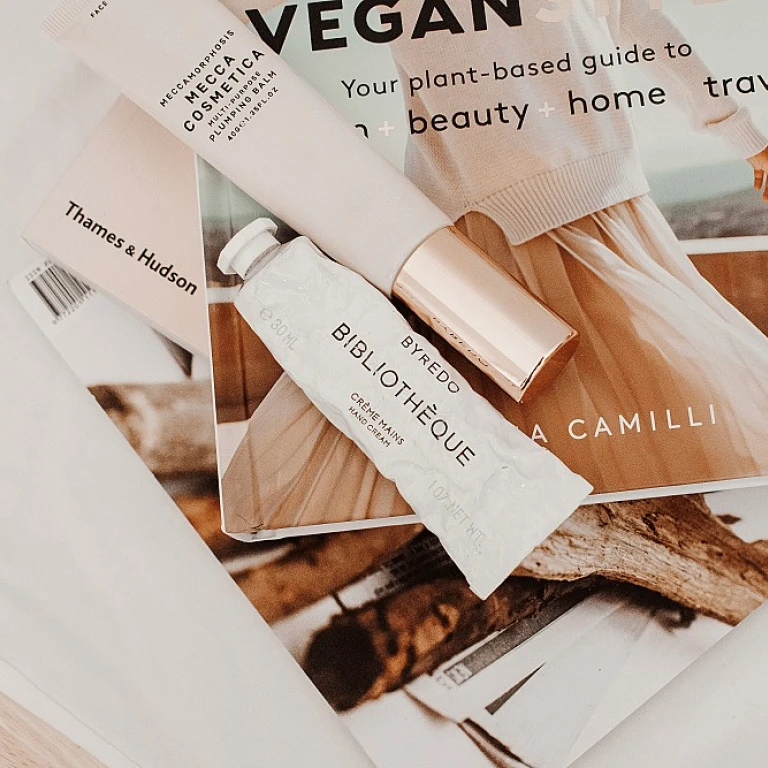
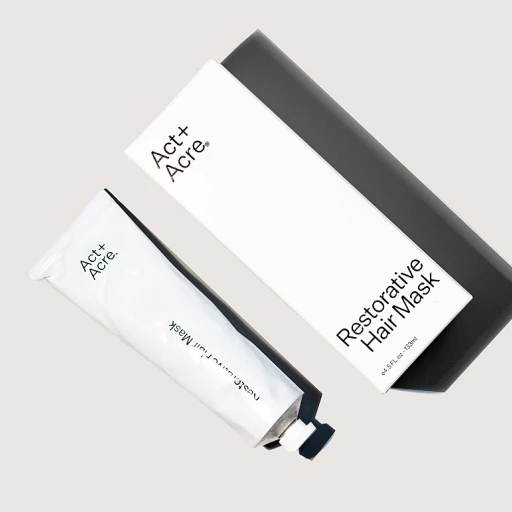
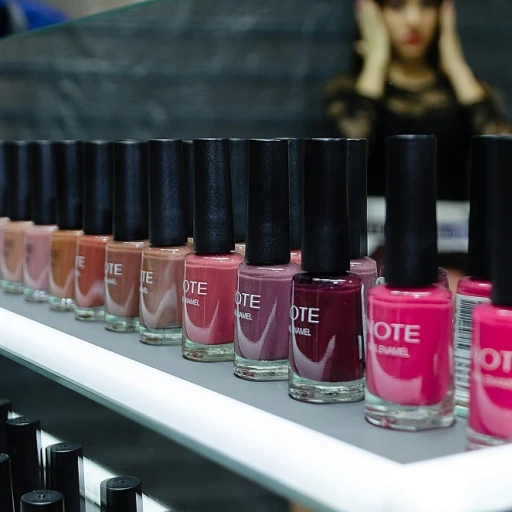
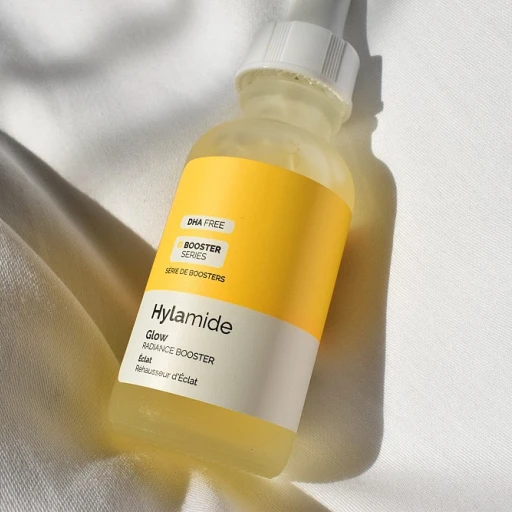
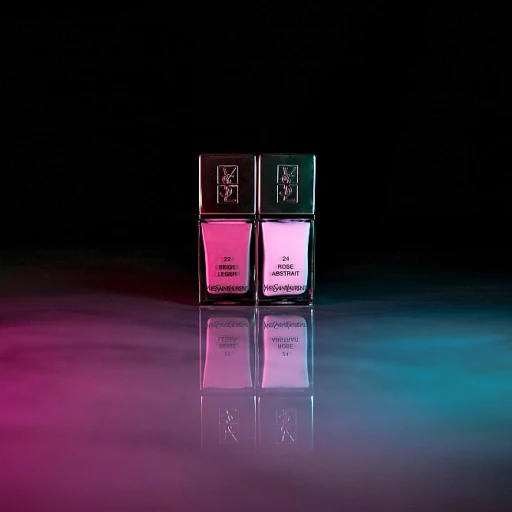
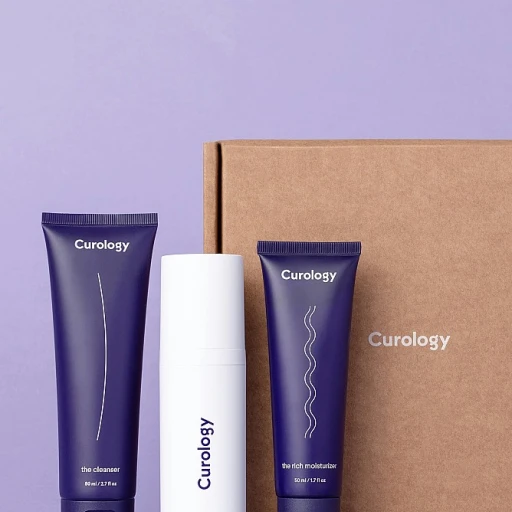
-large-teaser.webp)
